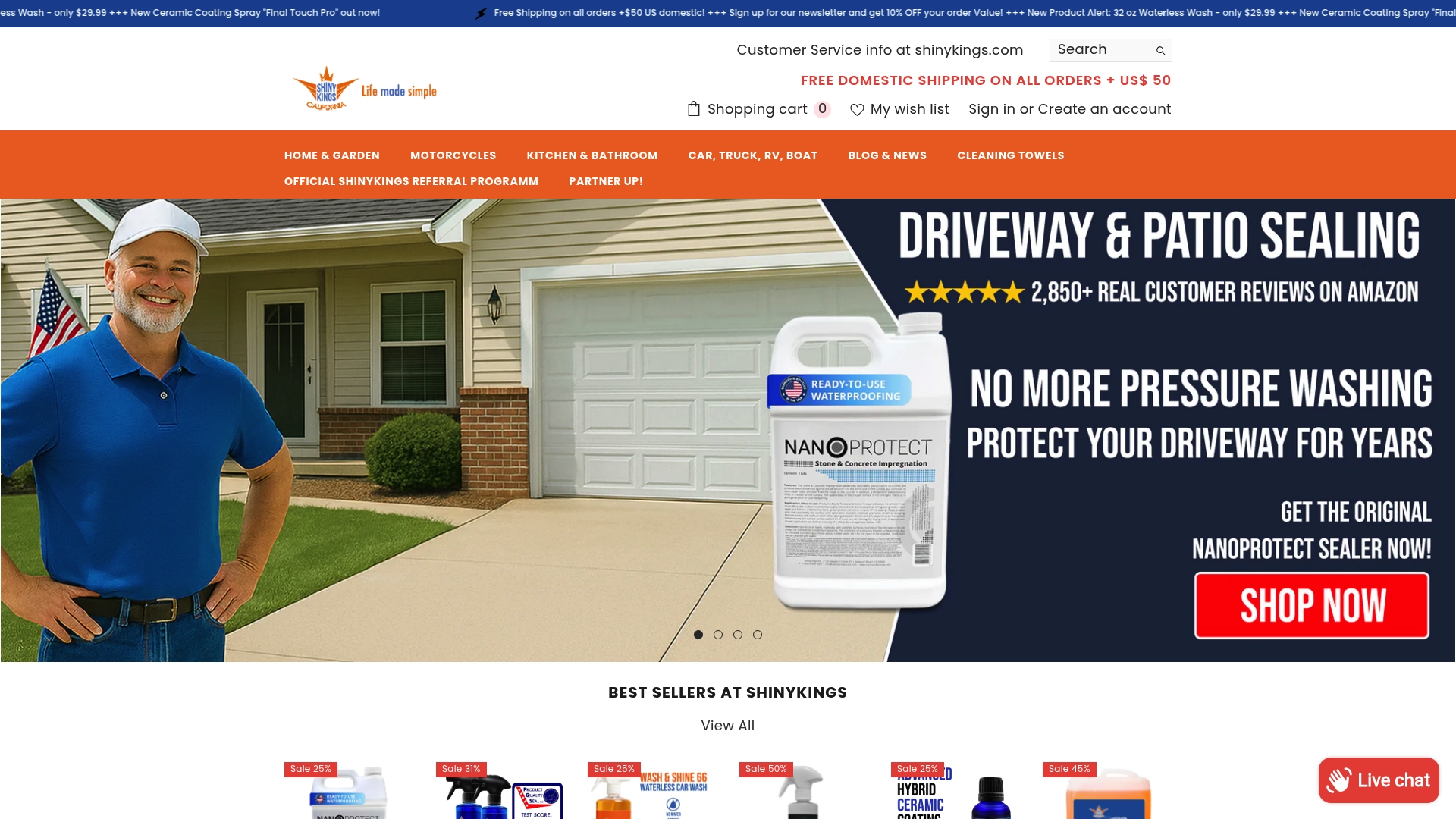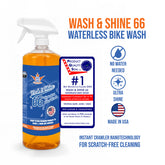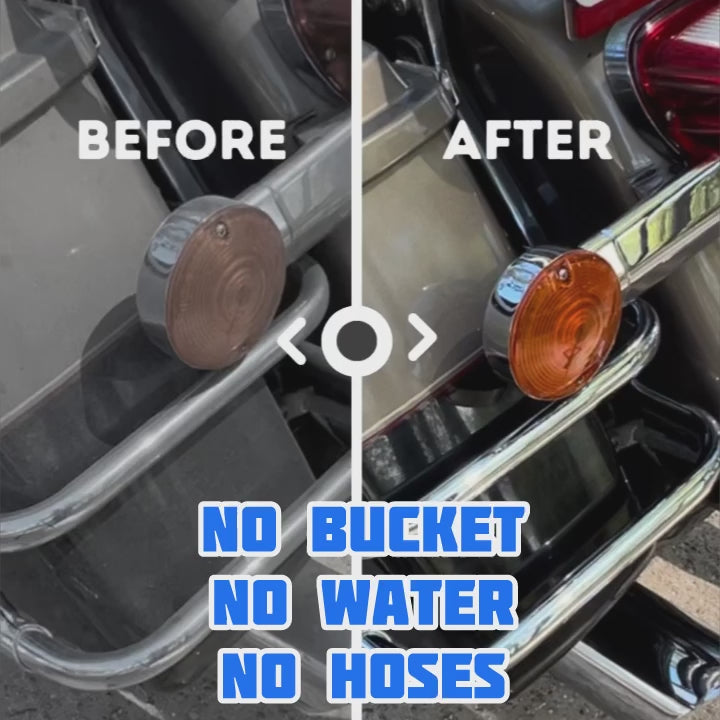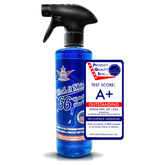7 Types of Concrete Sealers Every Homeowner Should Know
Concrete gets used everywhere, from driveways to patios and pool decks. Every year, millions of square feet are poured, yet many of those surfaces start to crack and stain far faster than homeowners expect. Here’s something most people skip right over—a quality sealer can extend concrete’s lifespan by several years and prevent costly repairs. The surprising part is that most concrete damage doesn’t come from heavy use but from water, chemicals, and sun sneaking past an unsealed surface.
Table of Contents
- Introduction To Concrete Sealers
- Acrylic Sealers: Benefits And Uses
- Epoxy Sealers: Strength And Durability Explained
- Polyurethane Sealers: Flexibility And Protection
- Penetrating Sealers: Deep Protection Insights
- Water-Based Vs. Solvent-Based Sealers
- Choosing The Right Sealer For Your Project
Quick Summary
| Takeaway | Explanation |
|---|---|
| Choose sealers based on surface needs. | Consider factors like location and expected traffic when selecting a concrete sealer for optimal performance. |
| Acrylic sealers are cost-effective for moderate use. | Affordable and easy to apply, acrylic sealers are suitable for driveways and patios with moderate foot or vehicle traffic. |
| Epoxy sealers provide maximum durability. | Ideal for heavy traffic areas, epoxy sealers bond strongly with concrete, offering exceptional protection against wear and chemicals. |
| Penetrating sealers ensure long-term protection. | These sealers offer deep, invisible protection against moisture and chemical damage without altering the concrete’s appearance. |
| Professional application is recommended for complex sealers. | For polyurethane and epoxy sealers, consider hiring professionals to ensure proper application and optimal protection outcomes. |
1: Introduction to Concrete Sealers
Concrete is an incredibly versatile material used in countless home improvement projects, from driveways and patios to pool decks and walkways. However, without proper protection, concrete can quickly deteriorate due to moisture, stains, and environmental wear. Concrete sealers are the unsung heroes that provide critical protection for these surfaces, extending their lifespan and maintaining their aesthetic appeal.
At its core, a concrete sealer acts as a protective barrier that shields the porous surface from potential damage. According to National Ready Mixed Concrete Association, concrete is naturally porous, which makes it vulnerable to water penetration, chemical intrusion, and surface degradation. By applying the right concrete sealer, homeowners can prevent these issues and significantly enhance the durability of their concrete surfaces.
Key benefits of using concrete sealers include:
-
Moisture Protection: Prevents water absorption and reduces freeze-thaw damage
-
Stain Resistance: Creates a barrier against oil, grease, and other potential staining agents
-
Enhanced Appearance: Can improve the color and finish of concrete surfaces
-
Reduced Maintenance: Minimizes the need for frequent cleaning and repairs
Choosing the right concrete sealer depends on several factors such as the specific concrete surface, environmental conditions, and desired aesthetic outcome. Read more about choosing the best concrete sealer for your driveway to make an informed decision that meets your specific needs.
In the following sections, we will explore the seven primary types of concrete sealers that every homeowner should understand, helping you protect and preserve your valuable concrete investments.
2: Acrylic Sealers: Benefits and Uses
Acrylic sealers represent one of the most popular and versatile concrete protection solutions for homeowners. These liquid-based sealers create a thin, protective film on the concrete surface, offering remarkable benefits that make them an excellent choice for various residential applications.
According to the Concrete Construction industry publication, acrylic sealers are known for their exceptional performance and cost-effectiveness. They are particularly effective in protecting concrete surfaces from moisture penetration, UV damage, and mild chemical exposure.
Key characteristics of acrylic sealers include:
-
Rapid Application: Easy to apply with rollers or sprayers
-
Affordable Protection: Generally less expensive than other sealer types
-
Quick Drying: Typically set within 1-2 hours
-
Enhanced Aesthetic: Can provide a glossy or matte finish
Acrylic sealers work exceptionally well for outdoor spaces like driveways, patios, and walkways. They are available in two primary formulations: water-based and solvent-based variants, each offering unique advantages. Water-based acrylics are more environmentally friendly and easier to apply, while solvent-based options provide deeper penetration and more robust protection.
Homeowners should consider acrylic sealers for surfaces that experience moderate traffic and require a balance between protection and appearance. Learn more about sealant properties and applications to understand how these protective coatings can extend the life of your concrete surfaces.
When applying acrylic sealers, proper surface preparation is crucial. The concrete must be clean, dry, and free from previous coatings to ensure optimal adhesion and performance. Most acrylic sealers will need reapplication every 2-3 years, depending on exposure and wear conditions.
3: Epoxy Sealers: Strength and Durability Explained
Epoxy sealers represent the gold standard in concrete protection, offering unparalleled strength and durability for homeowners seeking maximum surface resilience. These high-performance sealers are engineered to provide exceptional resistance against heavy traffic, chemical exposure, and extreme environmental conditions.
According to Concrete Construction Magazine, epoxy sealers create an incredibly strong protective layer that bonds directly with concrete surfaces, creating a nearly impenetrable barrier against moisture, stains, and wear.
Key advantages of epoxy sealers include:
-
Exceptional Durability: Withstands heavy industrial and residential traffic
-
Chemical Resistance: Protects against oil, grease, and harsh cleaning chemicals
-
Moisture Barrier: Prevents water penetration and potential concrete degradation
-
Aesthetic Enhancement: Available in multiple finishes from glossy to matte
Two-component epoxy systems offer the most robust protection, requiring precise mixing of resin and hardener to create a strong, long-lasting surface coating. These sealers are particularly recommended for areas experiencing significant stress, such as garage floors, industrial workspaces, and high-traffic commercial environments.
Explore solvent-based sealer options to understand how different sealer technologies can complement your concrete protection strategy.
While epoxy sealers provide superior protection, they do require meticulous application. Professional-grade epoxy sealers demand careful surface preparation, precise environmental conditions during application, and often require specialized tools and expertise. Homeowners should consider professional installation to ensure optimal performance and longevity.
The initial investment in epoxy sealers might be higher compared to other sealing options, but their exceptional durability and long-term protection make them a cost-effective solution for preserving concrete surfaces against wear, staining, and environmental damage.
4: Polyurethane Sealers: Flexibility and Protection
Polyurethane sealers represent a sophisticated solution for homeowners seeking superior concrete protection with remarkable flexibility. Unlike rigid sealing systems, these advanced polymeric coatings provide exceptional adaptability and resilience against environmental stressors.
According to Construction Specifier Magazine, polyurethane sealers offer a unique combination of strength and elasticity that allows them to withstand significant concrete movement and temperature variations without cracking or degrading.
Key performance characteristics of polyurethane sealers include:
-
Exceptional Flexibility: Accommodates concrete expansion and contraction
-
Superior Abrasion Resistance: Maintains protective layer under heavy traffic
-
Chemical Durability: Resists harsh cleaning agents and potential staining
-
UV Stability: Prevents yellowing and maintains aesthetic appearance
Polyurethane sealers are particularly effective for surfaces experiencing dynamic environmental conditions, such as outdoor patios, pool decks, and driveways. They excel at bridging small concrete cracks and preventing moisture intrusion, which can cause significant structural damage over time.
Explore polymer sealant technologies to gain deeper insights into how advanced polymer systems protect your concrete surfaces.
Moisture management is another critical advantage of polyurethane sealers. Their molecular structure allows concrete to breathe while simultaneously blocking water penetration, which prevents potential issues like mold growth, spalling, and freeze-thaw damage.
While polyurethane sealers offer superior protection, they typically require professional application due to their complex two-component mixing process. Homeowners should consider professional installation to ensure proper bonding and maximum performance. The slightly higher upfront investment translates into extended concrete surface life and reduced long-term maintenance costs.
5: Penetrating Sealers: Deep Protection Insights
Penetrating sealers represent a revolutionary approach to concrete protection, offering invisible yet powerful defense against environmental degradation. Unlike surface coatings that create a visible layer, these advanced sealers chemically react with concrete to provide deep, long-lasting protection from within.
According to National Ready Mixed Concrete Association, penetrating sealers create a molecular barrier that shields concrete from moisture, chemical intrusion, and potential structural damage without altering the surface’s natural appearance.
Key advantages of penetrating sealers include:
-
Invisible Protection: Maintains concrete’s original texture and appearance
-
Breathable Technology: Allows concrete to release moisture while blocking external water
-
Long-lasting Performance: Can provide protection for 5-10 years with proper application
-
Environmentally Friendly: Typically water-based and low in volatile organic compounds
Two primary types of penetrating sealers dominate the market: silane and siloxane-based formulations. Silane sealers work best for vertical surfaces like walls, while siloxane sealers excel in horizontal applications such as driveways and patios.
Explore more about polymer sealant technologies to understand the intricate science behind advanced concrete protection.
Penetrating sealers are particularly effective in regions experiencing extreme weather conditions. They provide exceptional protection against freeze-thaw cycles, salt damage, and chemical degradation. Concrete surfaces treated with penetrating sealers demonstrate significantly reduced water absorption, which prevents potential cracking, spalling, and structural weakening.
Homeowners should note that proper surface preparation is crucial for optimal penetrating sealer performance. The concrete must be clean, dry, and free from previous coatings to ensure maximum chemical penetration and long-term protection. While application might seem straightforward, professional consultation can help select the most suitable penetrating sealer for specific concrete surfaces and environmental conditions.
6: Water-Based vs. Solvent-Based Sealers
Concrete sealers come in two fundamental formulations that dramatically impact their performance, application, and environmental impact. Understanding the differences between water-based and solvent-based sealers helps homeowners make informed decisions about protecting their concrete surfaces.
According to Construction Specifier Magazine, each sealer type offers unique advantages and potential limitations that can significantly affect long-term concrete protection.
Key comparative characteristics include:
-
Water-Based Sealers:
- Environmentally friendly
- Lower volatile organic compound (VOC) emissions
- Easier cleanup
- Generally more cost-effective
-
Solvent-Based Sealers:
- Deeper concrete penetration
- Enhanced chemical resistance
- Better performance in extreme temperatures
- More durable long-term protection
Water-based sealers represent the eco-conscious choice for homeowners prioritizing environmental sustainability. These sealers produce minimal odors, dry quickly, and offer excellent surface protection with reduced chemical exposure. They work exceptionally well in residential settings, particularly for indoor spaces or areas with limited ventilation.
Explore solvent-based sealer technologies to understand the nuanced performance characteristics of advanced concrete protection systems.
Solvent-based sealers, conversely, provide more aggressive protection. Their molecular structure allows deeper concrete penetration, creating a more robust barrier against moisture, chemicals, and environmental stressors. Professional contractors often recommend solvent-based sealers for high-traffic areas, industrial environments, and surfaces exposed to harsh conditions.
Homeowners should consider specific application requirements, environmental conditions, and personal preferences when selecting between water-based and solvent-based sealers. Factors like surface porosity, expected traffic, climate, and desired aesthetic outcome will ultimately guide the most appropriate sealer selection.
7: Choosing the Right Sealer for Your Project
Selecting the perfect concrete sealer requires careful consideration of multiple factors that impact long-term surface protection and performance. Homeowners must evaluate their specific environmental conditions, surface requirements, and maintenance expectations to make an informed decision.
According to Concrete Construction Research, successful sealer selection involves a comprehensive assessment of several critical parameters.
Key selection criteria include:
-
Surface Location: Indoor vs outdoor applications
-
Expected Traffic Level: Light residential or heavy commercial use
-
Environmental Exposure: Temperature variations, moisture levels
-
Desired Aesthetic Outcome: Glossy, matte, or natural finish
Climate plays a pivotal role in sealer performance. Regions with extreme temperature fluctuations or high moisture levels require more robust sealing solutions. Polyurethane and epoxy sealers excel in challenging environments, offering superior durability and flexibility.
Discover professional driveway sealing techniques to understand the nuances of proper concrete protection.
Budget considerations are equally important. While premium sealers might represent a higher initial investment, they often deliver substantial long-term savings through reduced maintenance and extended concrete lifespan. Homeowners should view concrete sealing as a preventative maintenance strategy rather than a mere cosmetic enhancement.
Professional consultation can provide tailored recommendations based on specific concrete surfaces. Factors like surface age, existing damage, porosity, and intended use will ultimately determine the most appropriate sealer.
Below is a comprehensive table summarizing the key types of concrete sealers, their core benefits, ideal uses, and application notes as discussed throughout the article.
| Sealer Type | Key Benefits | Ideal Uses | Application Notes |
|---|---|---|---|
| Acrylic | Affordable, easy to apply, rapid drying, UV protection | Driveways, patios, moderate traffic areas | Needs reapplication every 2-3 years; surface prep critical |
| Epoxy | Maximum durability, chemical resistant, moisture barrier | Garages, industrial/workspace, heavy traffic | Professional application recommended, higher initial cost |
| Polyurethane | Superior flexibility, abrasion resistance, UV stable | Outdoor patios, pool decks, climate-prone areas | Handles expansion/contraction; best applied by pros |
| Penetrating | Invisible, breathable, long-lasting, eco-friendly | Exposed driveways, weathered concrete | Surface must be clean & dry; lasts 5-10 years |
| Water-Based | Low VOC, easy cleanup, eco-conscious, cost-effective | Indoor surfaces, areas with ventilation limits | Dries quickly, less odor, softer finish |
| Solvent-Based | Deep penetration, chemical durability, strong protection | High-traffic, industrial/outdoor surfaces | Durable, better in harsh climates, higher VOC |
| Professional vs DIY | Optimal results, tackles complex products | Advanced sealers or challenging environments | Pro install suggested for epoxy/polyurethane |
| Remember that proper surface preparation is just as crucial as selecting the right sealer for optimal protection and performance. |
Protect Your Concrete Surfaces with Trusted Solutions
You have learned how moisture, stains, and weather can threaten the appearance and durability of your concrete. Whether you need to safeguard a driveway, patio, or walkway, finding the right protection is essential. Many homeowners struggle to pick a sealer that matches their needs, especially with so many options like acrylic, epoxy, and penetrating sealers each claiming unique benefits. Prolong the lifespan of your investment and eliminate the worry of damage or unsightly marks by choosing professional-grade products designed for your specific surface.
Explore the most trusted concrete sealers for driveways and patios

Take the first step toward worry-free, beautiful concrete. Visit https://shinykings.com for proven concrete sealers and solutions, or check out our Best Concrete Sealers for Outdoor Use to protect your home starting today. Your surfaces deserve the strongest barrier available. Select your sealer now and see the difference that expert technology makes.
Frequently Asked Questions
What are the main types of concrete sealers every homeowner should know?
Concrete sealers come in seven primary types: acrylic, epoxy, polyurethane, penetrating, water-based, solvent-based, and specialized sealers. Each type offers unique benefits and applications depending on your specific project requirements. Consider assessing your concrete surface and the environmental conditions to determine the best fit.
How do I choose the right concrete sealer for my driveway?
To select the right concrete sealer for your driveway, consider factors like expected traffic levels, environmental exposure, and desired aesthetic finish. Start by evaluating whether you need a high-durability solution, like an epoxy or polyurethane sealer, which often lasts longer under heavy use, or if a lighter protection, like an acrylic sealer, is sufficient for your needs.
How often do I need to reapply concrete sealers?
The reapplication frequency of concrete sealers varies based on the type used; for example, acrylic sealers may need reapplication every 2-3 years, while penetrating sealers can last up to 5-10 years. Monitor the wear on your surface and plan to renew your sealant according to your specific sealer’s lifespan to maintain maximum protection.
What prep work is necessary before applying a concrete sealer?
Before applying a concrete sealer, ensure the surface is clean, dry, and free from previous coatings or debris. Power wash the area and let it dry thoroughly, ideally for at least 24 hours, to ensure optimal adhesion and protect the integrity of the sealant.
Can I apply concrete sealers myself, or should I hire a professional?
While some homeowners can apply concrete sealers themselves, particularly water-based or acrylic options, professional installation is often recommended for more complex sealers like epoxy or polyurethane. Hiring a professional can ensure precise application and optimal performance, especially for areas with heavy traffic or environmental stress.
What factors influence the performance of concrete sealers?
The performance of concrete sealers is influenced by several factors, including surface porosity, environmental conditions, traffic levels, and the specific type of sealer used. Analyze these elements to choose the most appropriate sealer and to determine the best application practices for long-lasting results.
Recommended
- What is the best concrete Sealer to seal your driveway? Explained – shinykingsinc
- How to Seal Your Driveway Like a Pro | Shinykings – shinykingsinc
- Concrete Sealer: My 2-Year Journey Protecting My Patio – shinykingsinc
- Understanding Why Seal Pavers Is Important for Your Home – shinykingsinc
- 7 Essential Roof Waterproofing Tips for Homeowners




